Within the movement we organize such online and offline activities as youth exchanges and training courses, local workshops and run a Facebook page. At this page you can find many different, interesting and fun information and data about Critical Thinking.
This past year we have grown a lot. From a small yet ambitious movement that boosted February 2018 to a thousand supporters all over the world. Within the movement there were organized 15 Erasmus+ projects and planned more, a lot of workshops and local events regarding the topic for more than 350 people. At every project Logos organizes there is a session about Critical Thinking. Also we have a coordinator, working for the movement.
At numerous training courses and youth exchange we created tons of useful information on critical thinking and media literacy – workshop outlines, infographics, posters, videos, games, quests and more. All of this information is available at our Google Drive and in the Materials section
And countless amount of people we influenced so far and will in the future. Switch on your brain!

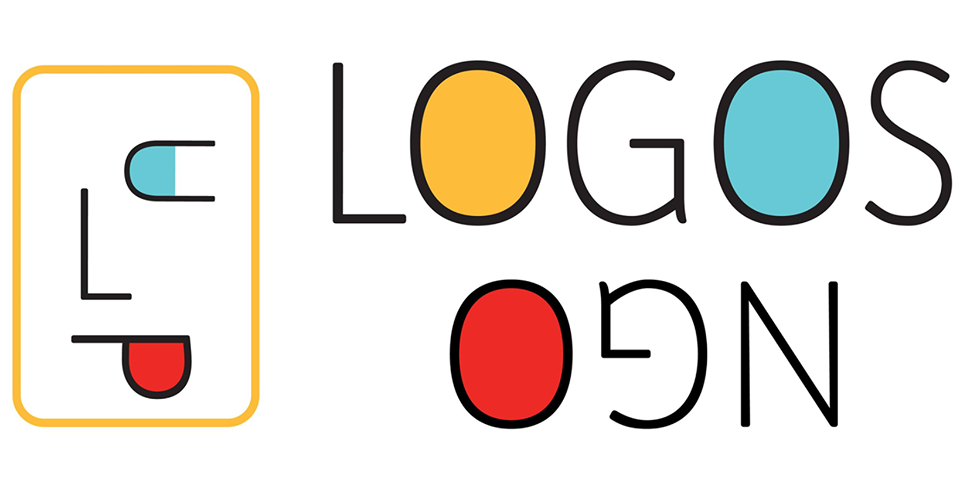


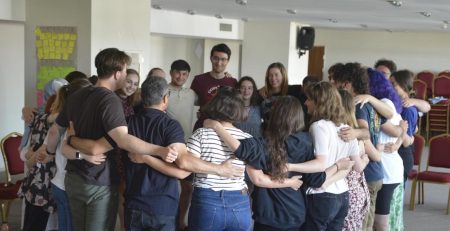


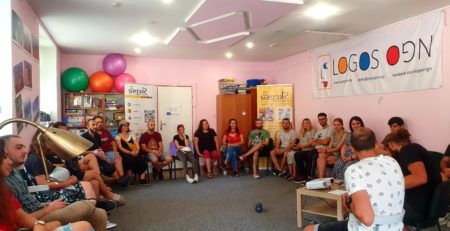
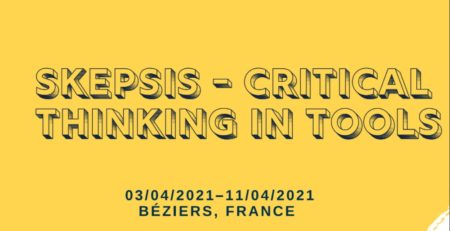
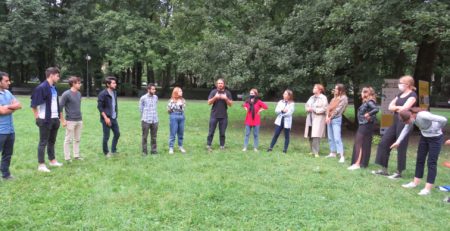
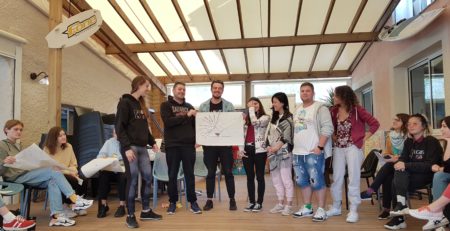
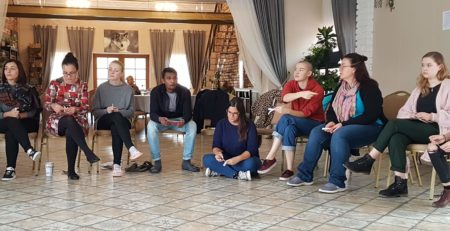
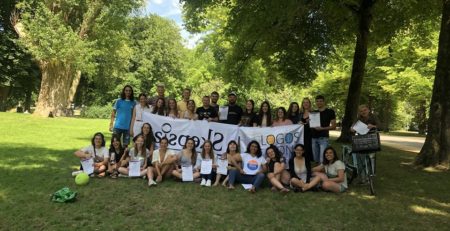

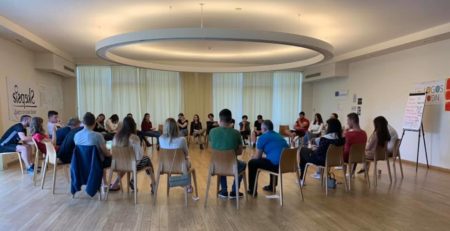
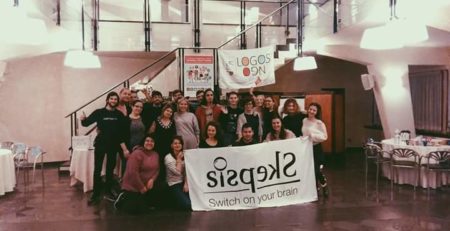
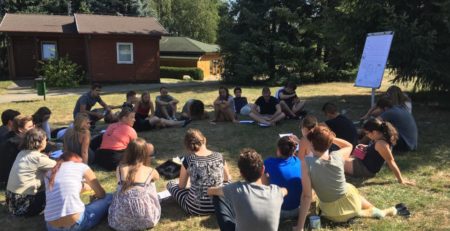
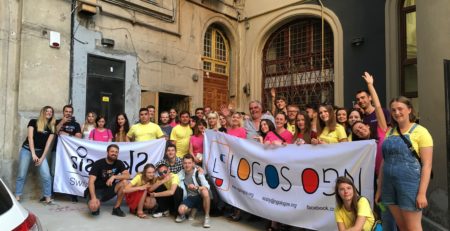
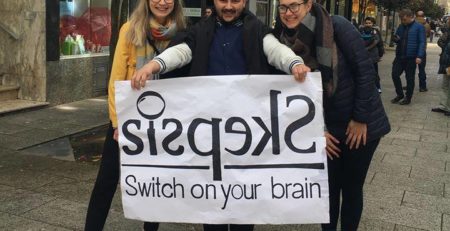
Gather ordinary people and ask them to discuss a plan to build a nuclear power plant and bicycle parking for its workers. Which of the plans do you think will be discussed longer? 🧐
Of course, nuclear electric… bicycle parking! 💪
This is the law of triviality, or the bike-shed effect. People often give disproportionate importance to simple and unimportant questions, avoiding difficult ones.
This can often be seen in social networks, parent chats, at work meetings or in the conversation of your residential school. Everyone very superficially discusses really important issues, but some insignificant details and events - carefully and with joy 🤦♂️
The thing is that it is easy and pleasant for us to discuss simple and understandable topics, but we really don't want to spend resources on complex ones. And it is much easier to form an opinion on a minor issue than on the construction of a power plant 🤷♀️
And where did you come across the effect of the bicycle shed? ... See MoreSee Less
1 years ago
Comment on Facebook Gather ordinary ...
Gather ordinary people and ask them to discuss a plan to build a nuclear power plant and bicycle parking for its workers. Which of the plans do you think will be discussed longer? 🧐
Of course, nuclear electric… bicycle parking! 💪
This is the law of triviality, or the bike-shed effect. People often give disproportionate importance to simple and unimportant questions, avoiding difficult ones.
This can often be seen in social networks, parent chats, at work meetings or in the conversation of your residential school. Everyone very superficially discusses really important issues, but some insignificant details and events - carefully and with joy 🤦♂️
The thing is that it is easy and pleasant for us to discuss simple and understandable topics, but we really don't want to spend resources on complex ones. And it is much easier to form an opinion on a minor issue than on the construction of a power plant 🤷♀️
And where did you come across the effect of the bicycle shed? ... See MoreSee Less
1 years ago
Comment on Facebook Gather ordinary ...
🤖 Should we be afraid of Artificial Intelligence?
We are here for you to tell some stories about it.
You've probably seen such horror movies 👇🏼
•AI will soon destroy humanity.
•AI will leave everyone without work.
•AI will take over all communications and the Internet.
Yes, someone called us that it will happen tomorrow 🤪
But seriously, it is worth looking at AI not only from a negative point of view. We cannot stop the development of technologies at the moment, and why should we?
We have to learn to live with what we already have and get the most out of it. And you definitely don't need to be afraid 🙂
🔹 Have you ever used Google translator or Grammarly or LanguageTool? And this is AI.
🔹 Or maybe your phone has a face recognition system - that's AI.
🔹 And after all, you use Google search every day, and it works on the basis of what? That's right, also artificial intelligence.
And in medicine, there are very successful examples of how AI recognizes diseases that humans could not recognize.
❗️ And no, it's not shameful. It helps us to make our life easier and more productive.
Yes, there are some downsides to AI that can be scary.
But it would be more correct to formulate it differently. Negative consequences of human use of AI. [It would be fair to deal with what people do 😏].
📸 For example, creating fake videos and images that can be used to manipulate or mislead. Have you seen the Pope in a supposed jacket from Balenciaga? Yes, for a second we also believed that the photo was real, but then it turned out that it was not.
That is why we have all gathered here. Let's learn to use technology correctly and for its intended purpose. Because there is no getting away from them. ... See MoreSee Less
1 years ago
Comment on Facebook 🤖 Should we be ...
🐱There are several countries that are commonly known by different names in English than in their own language.
Here some of the examples☝🏽 ... See MoreSee Less
1 years ago
Comment on Facebook 1907184566069577_606245888207859
Is it true that myopia can be cured with exercise?
Not true. Eye exercises are one of the most popular myths in ophthalmology. There is no evidence to support that any eye exercise can improve visual acuity or prevent wearing glasses. The exception is convergence insufficiency [reduced ability of the eyes to turn towards each other].
At the same time, eye exercises will not harm you. You can do it if it makes you feel better.
#skepsismovement ... See MoreSee Less
1 years ago
Comment on Facebook Is it true that ...
🤔Do you know what is the most common problem in logic?
Failure to correctly identify the cause of the event!
⠀
It often happens like this: we draw hasty conclusions - our mind seeks to find at least some reason - comes to false conclusions.
For example: ... See MoreSee Less
1 years ago
Comment on Facebook 1907184566069577_582702467228868